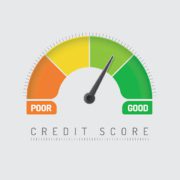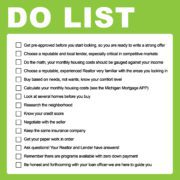The Mortgage Paperwork Checklist: What You Need and Why
Buying a home is an exciting journey, but if there’s one part that can feel overwhelming, it’s the paperwork. From pay stubs to tax returns, lenders ask for a lot of information to make sure they fully understand your financial situation before approving your loan.
But don’t worry! With a little preparation and organization, you can keep the process smooth and stress-free. Let’s break down the essential documents you’ll need, why they matter, and how to stay on top of it all.
Income and Employment Verification
What you’ll need:
- Recent pay stubs (usually the last 30 days)
- W-2 forms from the past two years
- Tax returns (especially if you’re self-employed)
- Year-to-date profit and loss statements (for business owners)
Why it matters:
Lenders want to verify that you have a steady, reliable source of income to comfortably cover your future mortgage payments. If you’re self-employed or have multiple income streams, expect to provide additional supporting documents to show consistent earnings.
Asset Statements
What you’ll need:
- Recent bank statements (checking and savings accounts)
- Retirement or investment account statements
Why it matters:
These documents prove that you have enough money for the down payment, closing costs, and reserves if required. They also help your lender see if there are any large deposits or unusual activity that needs to be explained.
Debt and Liability Information
What you’ll need:
- Monthly statements for credit cards, auto loans, student loans, or other debts
- Documentation for any alimony or child support obligations (if applicable)
Why it matters:
Lenders use your debt information to calculate your debt-to-income (DTI) ratio, a key factor in determining how much you can safely borrow.
Identification and Personal Documentation
What you’ll need:
- A government-issued photo ID (driver’s license or passport)
- Social Security number (or documentation for alternative identification, if applicable)
Why it matters:
These items help confirm your identity and protect against fraud.
Other Possible Documents
Depending on your unique financial situation, lenders may also request:
- Divorce decrees
- Gift letters (if part of your down payment is a gift from family)
- Rental history or current lease agreement
- Proof of additional income, like bonuses or commissions
How to Stay Organized
A big part of speeding up the mortgage process is being organized from the start. Here are a few tips:
- Create a dedicated folder (digital or physical): Keep all requested documents in one place so they’re easy to access.
- Respond quickly: The faster you provide updated documents, the smoother (and faster!) your process will go.
- Ask questions: If you’re unsure why something is needed, don’t hesitate to ask your lender. A great lending team will always be happy to explain.
Final Thoughts
While the paperwork can feel daunting, each document plays an important role in helping your lender understand your financial picture and secure the best possible loan for you. Being prepared not only reduces stress but can also help you get to closing day even faster.
At Michigan Mortgage, we’re here to guide you through every step, including that stack of paperwork.
Ready to get started? Let’s make your homeownership journey as smooth as possible.











